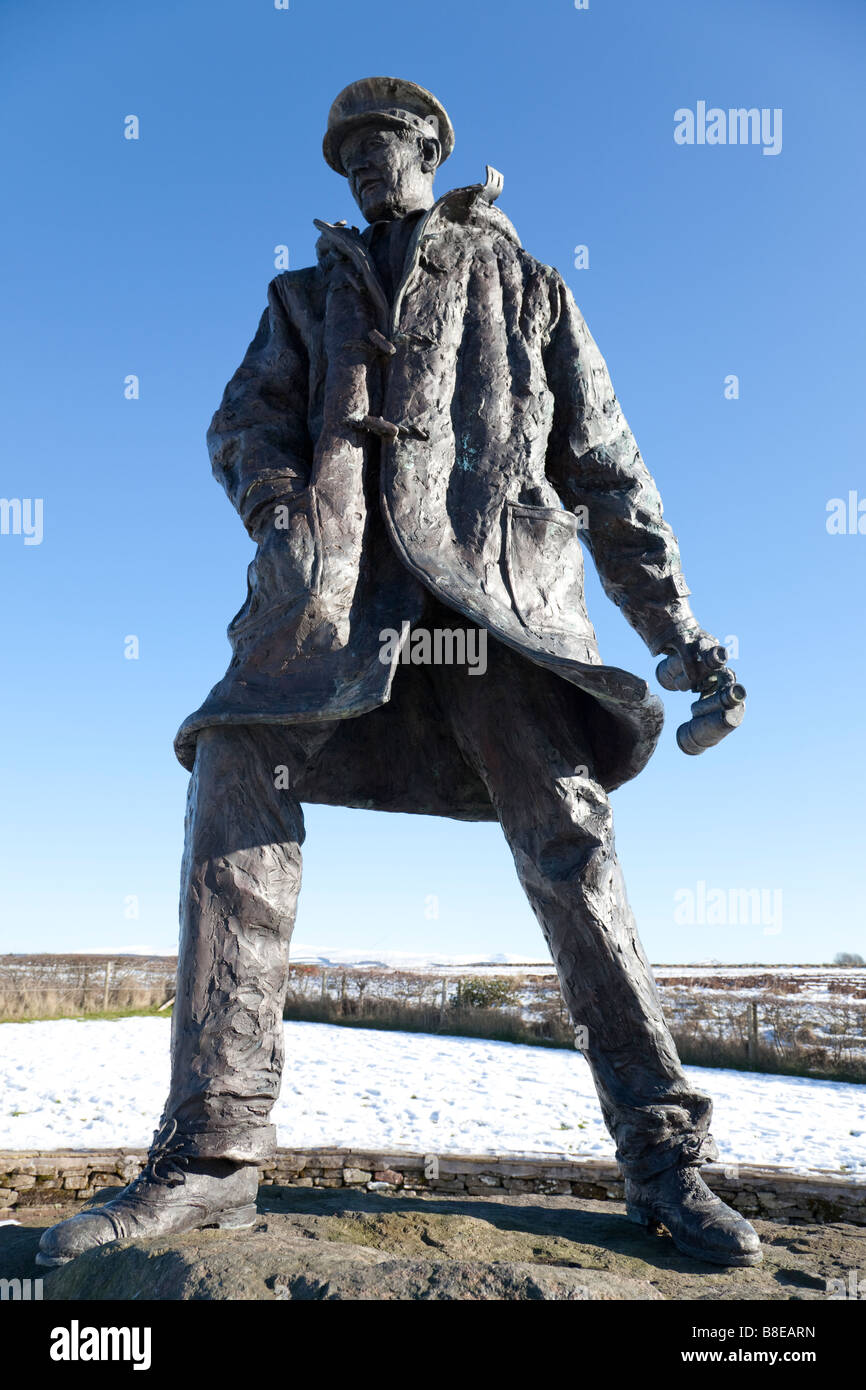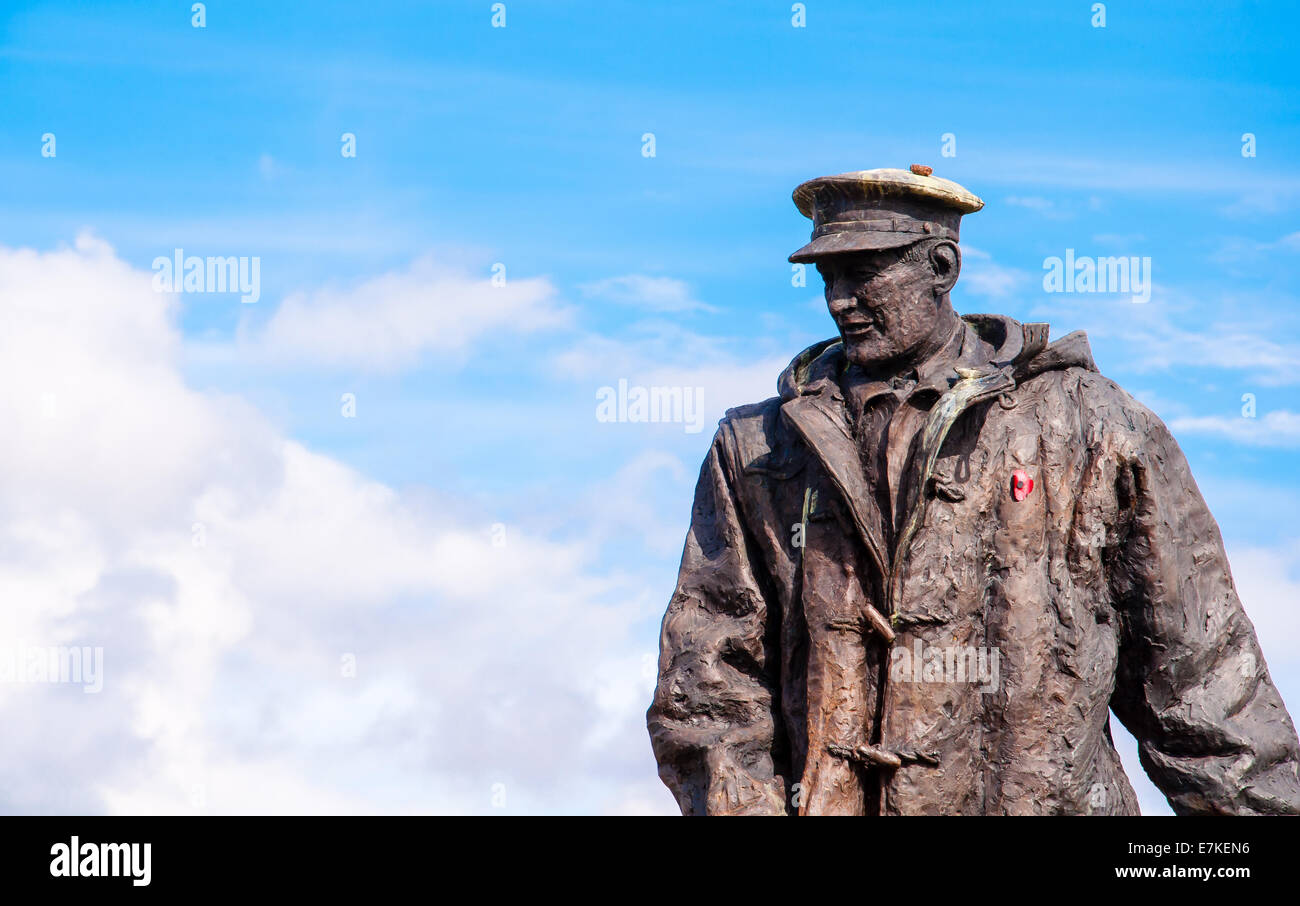David Stirling SAS is a name synonymous with audacity, innovation, and military excellence. Known as the founding father of the Special Air Service, Stirling's contributions to modern warfare are both profound and enduring. His vision for a specialized unit capable of executing unconventional warfare tactics transformed the British military's approach and laid the groundwork for special forces worldwide. But who was the man behind the legend, and how did his unique ideas come to fruition?
Stirling's early life and experiences shaped his military philosophy. Born into a distinguished Scottish family, he was imbued with a sense of duty and adventure. These traits were further honed during his time at Ampleforth College and later at Trinity College, Cambridge. However, it was his wartime service that truly defined him. Stirling saw the shortcomings of conventional military strategies and envisioned a more agile, adaptable force that could achieve strategic objectives with precision and stealth.
The creation of the SAS was not without its challenges. Stirling faced skepticism from military brass who were entrenched in traditional doctrines. Nevertheless, his persistence and innovative thinking led to the establishment of the SAS in 1941. This new unit quickly proved its worth with daring raids and reconnaissance missions in North Africa, demonstrating the effectiveness of Stirling's concepts. The impact of his work extends beyond World War II, influencing the development of special operations forces globally and cementing Stirling's legacy as a pioneer of modern military strategy.
Read also:Elon Musks Wife A Dive Into The Life Of Grimes
Table of Contents
- David Stirling: Biography
- What were the early influences on David Stirling?
- David Stirling's Military Career
- How was the Special Air Service (SAS) formed?
- What innovations did Stirling bring to military tactics?
- What challenges did David Stirling face in establishing the SAS?
- David Stirling's Legacy
- How did Stirling's SAS influence global special forces?
- David Stirling's Life After the War
- Were there any controversies surrounding Stirling's career?
- Personal Life of David Stirling
- David Stirling: Bio Data
- Famous Quotes by David Stirling
- Books About David Stirling and the SAS
- How is David Stirling portrayed in popular culture?
David Stirling: Biography
David Stirling was born on November 15, 1915, in Keir House, Scotland. He was the son of Brigadier General Archibald Stirling and the Honorable Margaret Fraser, daughter of Simon Fraser, the 13th Lord Lovat. Raised in a family steeped in military tradition, Stirling was groomed for a life of service from an early age. His upbringing instilled in him the values of leadership, courage, and innovation, which would later become the hallmarks of his military career.
What were the early influences on David Stirling?
Stirling's formative years were spent in the Scottish Highlands, where he developed a love for the outdoors and adventure. His education at Ampleforth College, a renowned Benedictine institution, further shaped his character, emphasizing discipline and moral integrity. Despite his privileged background, Stirling was known for his humility and willingness to take risks. His time at Cambridge University was marked by a sense of restlessness and a desire to break free from conventional paths.
David Stirling's Military Career
In 1937, Stirling joined the Scots Guards, a decision that marked the beginning of his military journey. However, it was during World War II that his career truly took off. He initially served with the British Commandos, where he honed his skills in unconventional warfare. Stirling's daring spirit and innovative thinking soon set him apart, leading to the creation of the Special Air Service, a unit that would redefine modern military tactics.
How was the Special Air Service (SAS) formed?
The idea for the SAS was born out of Stirling's frustration with the traditional military tactics employed by the British Army during World War II. He envisioned a small, highly trained unit capable of conducting covert operations behind enemy lines. In 1941, Stirling's vision became a reality with the formation of the SAS. This new unit quickly proved its worth with successful raids in North Africa, demonstrating the effectiveness of Stirling's unconventional approach.
What innovations did Stirling bring to military tactics?
Stirling's approach to warfare was revolutionary. He emphasized speed, mobility, and surprise, departing from the conventional strategies of large-scale engagements. The SAS employed hit-and-run tactics, sabotage, and reconnaissance, disrupting enemy supply lines and gathering vital intelligence. Stirling's emphasis on rigorous training and adaptability set new standards for military operations, influencing the development of special forces worldwide.
What challenges did David Stirling face in establishing the SAS?
Stirling faced significant opposition from military leaders who were skeptical of his unconventional ideas. Convincing the British High Command to support the formation of the SAS required persistence and diplomacy. Stirling's tenacity paid off, but not without challenges. The initial lack of resources and manpower posed difficulties, but Stirling's leadership and vision ultimately overcame these obstacles, proving the SAS's value on the battlefield.
Read also:Warren Sapp Net Worth 2023 A Deep Dive Into His Wealth And Career
David Stirling's Legacy
David Stirling's legacy extends far beyond his wartime achievements. His innovative approach to warfare and the establishment of the SAS paved the way for modern special operations forces. Stirling's emphasis on adaptability, stealth, and precision continues to influence military strategy worldwide. His contributions have been recognized with numerous honors, cementing his status as a pioneering figure in military history.
How did Stirling's SAS influence global special forces?
The success of the SAS under Stirling's leadership demonstrated the effectiveness of special operations forces, inspiring similar units worldwide. Countries such as the United States, Israel, and Australia have developed their own special forces modeled on the SAS's principles. Stirling's emphasis on rigorous training, unconventional tactics, and versatility has become the blueprint for elite military units globally, highlighting the enduring impact of his innovations.
David Stirling's Life After the War
After World War II, Stirling continued to be involved in military and security affairs. He founded several private security firms and remained an influential figure in defense circles. Stirling's post-war endeavors reflected his commitment to innovation and security, contributing to his lasting legacy as a visionary leader. Despite facing challenges and controversies, Stirling's reputation as a pioneering military strategist remained intact.
Were there any controversies surrounding Stirling's career?
While Stirling's contributions to military strategy are widely recognized, his career was not without controversy. His unconventional tactics and unorthodox approach sometimes drew criticism from traditionalists. Additionally, Stirling's involvement in private security ventures raised questions about the ethics of privatizing military expertise. Despite these controversies, Stirling's legacy as an innovative leader remains largely untarnished.
Personal Life of David Stirling
Beyond his military achievements, Stirling's personal life was marked by a deep sense of duty and adventure. He was known for his charismatic personality and ability to inspire others. Stirling's love for the outdoors and his Scottish heritage remained central to his character. Despite the challenges he faced, Stirling's resilience and determination were evident in both his personal and professional endeavors.
David Stirling: Bio Data
| Full Name | David Stirling |
|---|---|
| Birth Date | November 15, 1915 |
| Place of Birth | Keir House, Scotland |
| Parents | Brigadier General Archibald Stirling and Hon. Margaret Fraser |
| Education | Ampleforth College, Trinity College, Cambridge |
| Military Rank | Lieutenant Colonel |
| Notable Achievements | Founder of the Special Air Service (SAS) |
| Death | November 4, 1990 |
Famous Quotes by David Stirling
David Stirling was known for his insightful observations on military strategy and leadership. Some of his famous quotes reflect his innovative thinking and commitment to excellence:
- "The art of war is simple enough. Find out where your enemy is. Get at him as soon as you can. Strike him as hard as you can, and keep moving on."
- "He who dares wins."
- "In war, there is no substitute for victory."
Books About David Stirling and the SAS
Numerous books have been written about David Stirling and the formation of the SAS. These works provide insights into his life, military philosophy, and the enduring impact of his innovations. Some notable titles include:
- "Stirling's Men" by Gavin Mortimer
- "The Phantom Major" by Virginia Cowles
- "David Stirling: The Authorised Biography of the Founder of the SAS" by Alan Hoe
How is David Stirling portrayed in popular culture?
David Stirling's legacy has been immortalized in various forms of popular culture. His exploits have been depicted in films, documentaries, and television series, showcasing his daring leadership and revolutionary ideas. Stirling's story continues to captivate audiences, highlighting the enduring fascination with his life and contributions to military history.

